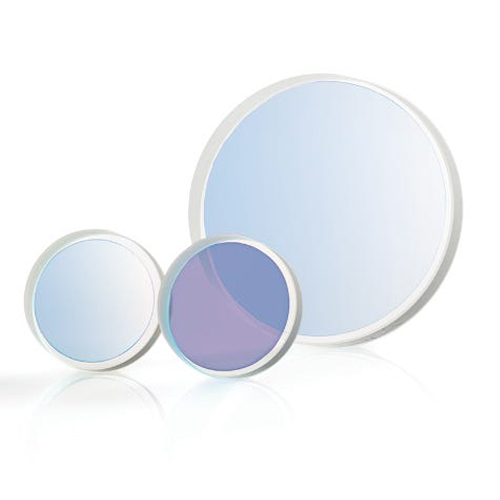Products News
The Difference Between High-power and Low-power Optical Laser Quartz Protective Windows
1. Types of Laser Lenses
Laser lenses are optical components specially used for reflecting or refracting lasers. Depending on the required laser power and the environment in which the laser is used, laser lenses can be divided into low-power laser lenses and high-power laser lenses.

2. The Difference Between Low-power and High-power Laser Lenses
a. Different Materials
Low-power laser lenses are usually made of ordinary glass or quartz, while high-power laser lenses are made of optical crystal materials, because crystals have better heat resistance and radiation resistance and can withstand the impact of high-power lasers.
b. Different Surface Treatments
Low-power laser lenses do not require special surface treatments, while high-power laser lenses require special reflective film and anti-reflective film coatings. The reflection and refraction of high-power laser beams will release a large amount of energy to the surface of the reflective film. If there is no coating treatment, the reflective film will be damaged.
c. Different Durability
Due to the different materials and surface treatments used, the durability of low-power laser lenses is relatively low. High-power laser lenses have better durability and can withstand long-term high-energy laser strikes.
3. Performance Under High-power Laser and Low-power Laser
a. Performance Under Low-power Laser
High-power laser equipment usually requires a higher-performance protective window. Imported quartz windows perform well under high-power lasers. Their main advantages include:
• High transmittance: Quartz materials allow light to pass through almost without loss, ensuring accuracy during laser cutting and welding.
• High temperature resistance: Quartz materials can remain stable under high temperature environments, are not easy to deform or melt, and are suitable for high-power laser equipment.
• Wear resistance: Quartz materials have high hardness, can resist wear and extend service life.
b. Performance Under Low-power Laser
For low-power laser equipment, quartz protective windows also perform well:
• Good optical properties: Quartz materials can transmit ultraviolet and infrared rays, suitable for low-power laser applications.
• Chemical stability: Quartz materials have good resistance to most chemicals and are suitable for various environments.
4. Applicable Scenarios and Selection Suggestions
When choosing a quartz protective window, the following points need to be considered:
• Laser type and wavelength: Select a suitable protective window according to the type and wavelength of the laser to ensure good protection.
• Power and pulse characteristics: High-power continuous wave lasers require high transmittance and high temperature resistance, while pulsed lasers require the ability to handle high peak power.
• Protection level: Make sure that the protection level of the selected window matches the actual laser system used.
• Certification and standards: Select a protective window that meets international or regional safety standards to ensure its quality and safety.
5. Summary
In general, low-power laser lenses are suitable for lasers with relatively small laser power and large divergence angles; while high-power laser lenses are suitable for lasers with relatively large laser power and small divergence angles. Selecting different laser lenses according to specific usage scenarios and power requirements can effectively protect the stable operation of optical components and extend the service life of lasers.
RELATED NEWS
- Fully Automatic Chemiluminescence Instrument Filter 2024-10-30
- Ultraviolet UV-C band quartz glass sterilization filter 2024-10-30
- Laser Ranging Filters 2024-10-25
- Laser Welding Machine Filter 2024-10-25
- UV Light Isolation Filters 2024-10-25
CATEGORIES
LATEST NEWS
CONTACT US
Contact: Jessie
Phone: +86 13772020541
E-mail: info@borisun.com; jessie@borisun.com
Whatsapp:+86 13772020541
Add: First floor, dalanyingthermal insulation material factory, Shima Road, Hantai District, Hanzhong City, Shaanxi Province, China 723000
